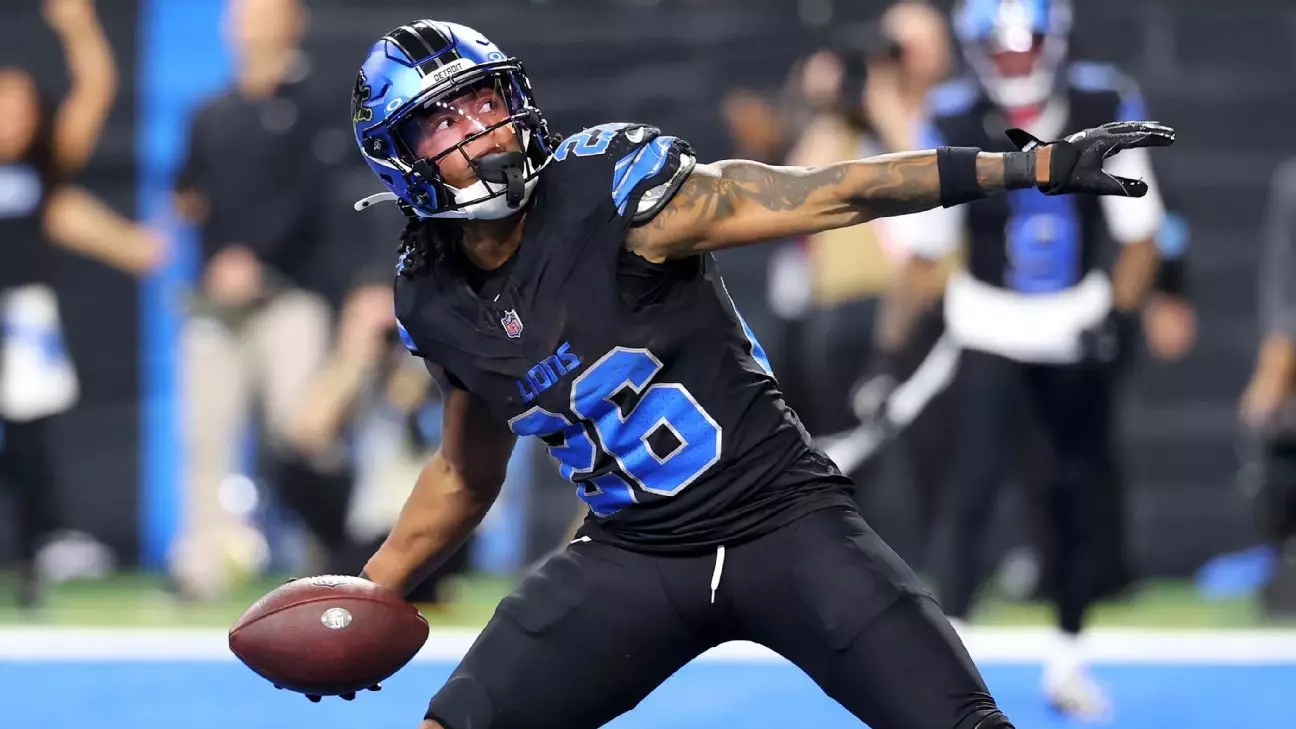The Detroit Lions secured their second consecutive NFC North title and home-field advantage in the playoffs with a commanding victory over the Minnesota Vikings, winning 31-9 on a Sunday night filled with intensity and excitement. The performance was a significant indicator of the Lions’ potential as they move deeper into the postseason with the hope of ending their championship drought that stretches back to 1957. This article delves into the nuances of the game, the standout performances, and the implications for both teams going forward.
In a matchup that showcased the best of the NFC, it was running back Jahmyr Gibbs who emerged as the star for the Lions. With three of his four touchdowns occurring in the second half, Gibbs demonstrated not just his skill but also his ability to perform under pressure. His 139 rushing yards and an additional 31 receiving yards underscored his versatility and importance to the Lions’ offense. The game shifted dramatically as the teams headed to halftime with the Lions holding a slim 10-6 lead, but Gibbs’ explosive performance in the second half propelled Detroit to victory.
One of the most pivotal moments came early in the third quarter when Vikings rookie kicker Will Reichard scored a field goal, narrowing the gap to 10-9. This moment could have spelled a shift in momentum; however, Jared Goff led a meticulous 13-play drive that culminated in a crucial touchdown pass to Gibbs. This response not only extended Detroit’s lead but also highlighted Goff’s ability to bounce back after throwing two interceptions earlier in the game. Completing over 81% of his passes demonstrated Goff’s resilience and skill, even in the face of adversity.
On the other hand, the Minnesota Vikings faced a frustrating night, plagued by missed opportunities and critical turnovers. Quarterback Sam Darnold struggled significantly, completing only 44% of his passes, marking a clear departure from his previous performances in the season. His relationship with star receiver Justin Jefferson faltered, as they connected just thrice out of nine targets.
Minnesota’s inability to convert in the red zone was particularly devastating. Numerous times, they found themselves in prime scoring positions but consistently failed to capitalize. Notably, on a fourth down from just three yards out, Darnold failed to connect with an open Jefferson in the end zone—an instance that epitomized the Vikings’ struggles throughout the game. Instead of taking the lead, they opted for a long field goal late in the third quarter, which was unsuccessful, stifling any momentum they had built.
The significance of this win extends beyond just the current season. This contest, marked as the 272nd game of the regular season, featured two franchises with a combined 28 wins—an unusual scenario that intensifies the stakes. The last time such a situation arose occurred in 1993, when the Dallas Cowboys faced the New York Giants; the Cowboys went on to secure the Super Bowl title that year. The Lions are hoping their victory serves as a precursor to similar success in this year’s playoffs. With the NFC playoffs set to unfold, the Lions are eager to create their legacy and possibly break their long-standing curse regarding championship games.
As the Lions prepare for their well-deserved bye week, they will strategize for the playoffs, focusing on healing their banged-up roster. With a favorable position and a solid momentum stemming from this victory, fans look forward to what could be a historic run in the playoffs. Conversely, the Vikings must regroup and address their inefficiencies, particularly in red-zone offense and quarterback performance, as they prepare to face the formidable Los Angeles Rams next week.
Detroit’s win was not just a matter of scoreboard dominance; it illustrated their growth as a team capable of seizing opportunities and overcoming challenges. As playoffs loom, both franchises have critical tasks ahead, each with their own unique paths to potentially shaping NFL history.

Leave a Reply